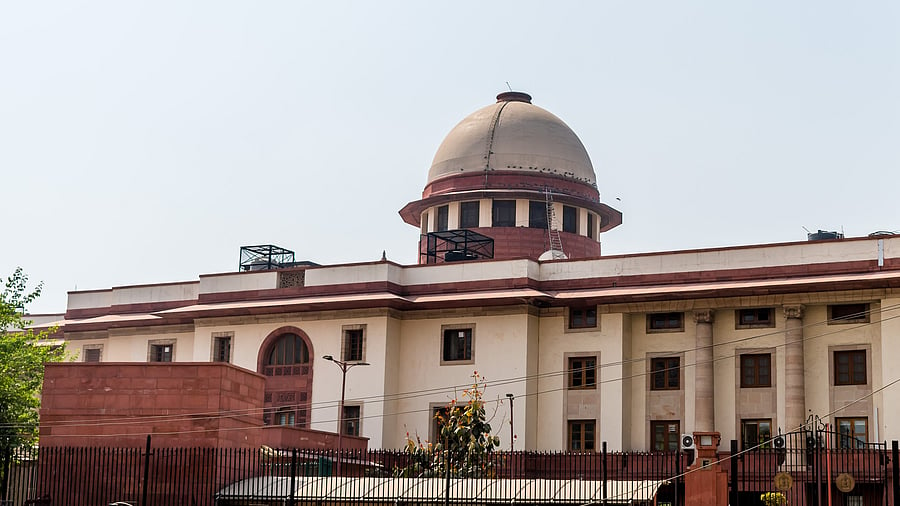
Supreme Court
Credit: iStock Photo
New Delhi: The Centre has told the Supreme Court that any suggestion to amend or dilute the age of consent by introducing exceptions, would be contrary to the original legislative intent, and open the door to child abuse, coercion, and the misuse of consent in exploitative contexts.
In a written submissions, the Union government has submitted before a bench of Justices Vikram Nath and Sandeep Mehta, that the legislative framework on the age of consent under Indian law is rooted in a clear and unambiguous intent to provide a robust, non-negotiable shield to all persons below the age of 18 years against sexual exploitation.
"The age of consent under Indian law, fixed at 18 years, represents a carefully considered legislative choice aimed at creating a non-negotiable protective framework for children. This flows from the inherent protection provided to children envisaged under the Constitution," it said.
The government in its submissions settled by Additional Solicitor General Aishwarya Bhati maintained that loosening age-based protections could open avenues for abuse under the guise of consensual activity.
It asserted that the principle of strict liability in cases involving minors is not a punitive tool, but a protective shield.
"It is based on the recognition that children, even when physically mature, are often incapable of fully appreciating the consequences of their actions or resisting coercion, particularly in the face of parental control, societal norms, or economic vulnerability.
"Thus, the law rightly refuses to treat such “consent” as informed or valid," the Centre said.
The government said while there may arise individual cases where adolescents, out of emotional curiosity or mutual attraction, engage in romantic or physical relationships, such instances must be carefully scrutinized by courts on a case-by-case basis, using discretion and sensitivity to the facts.
The Centre said the statutory age of consent fixed at 18 years must therefore be strictly and uniformly enforced.
"Any departure from this standard, even in the name of reform or adolescent autonomy, would amount to rolling back decades of progress in child protection law, and undermine the deterrent character of statutes like the POCSO Act, 2012 and the BNS," it said.
The government also said introducing a legislative close-in-age exception or reducing the age of consent would irrevocably dilute the statutory presumption of vulnerability that lies at the heart of child protection law.
"A diluted law risks opening the floodgates to trafficking and other forms of child abuse under the garb of consent," it said.
The Centre also pointed out the Supreme Court along with High Courts across the country have always maintained the sanctity of legal age of consent as 18 years of age.
This statutory yardstick has been upheld on numerous occasions, keeping in view the legislative intent and the pre-eminent constitutional mandate of protecting young children, it said.
Senior advocates Indira Jaising and Sidharth Luthra assisted the court in a 2012 public interest litigation filed by advocate Nipun Saxena.
Jaising sought a direction to bring the age of consent from 18 to 16 years, saying the legal framework wrongly equated consensual relationships between adolescents with abuse, ignoring their autonomy, maturity, and capacity to consent.
